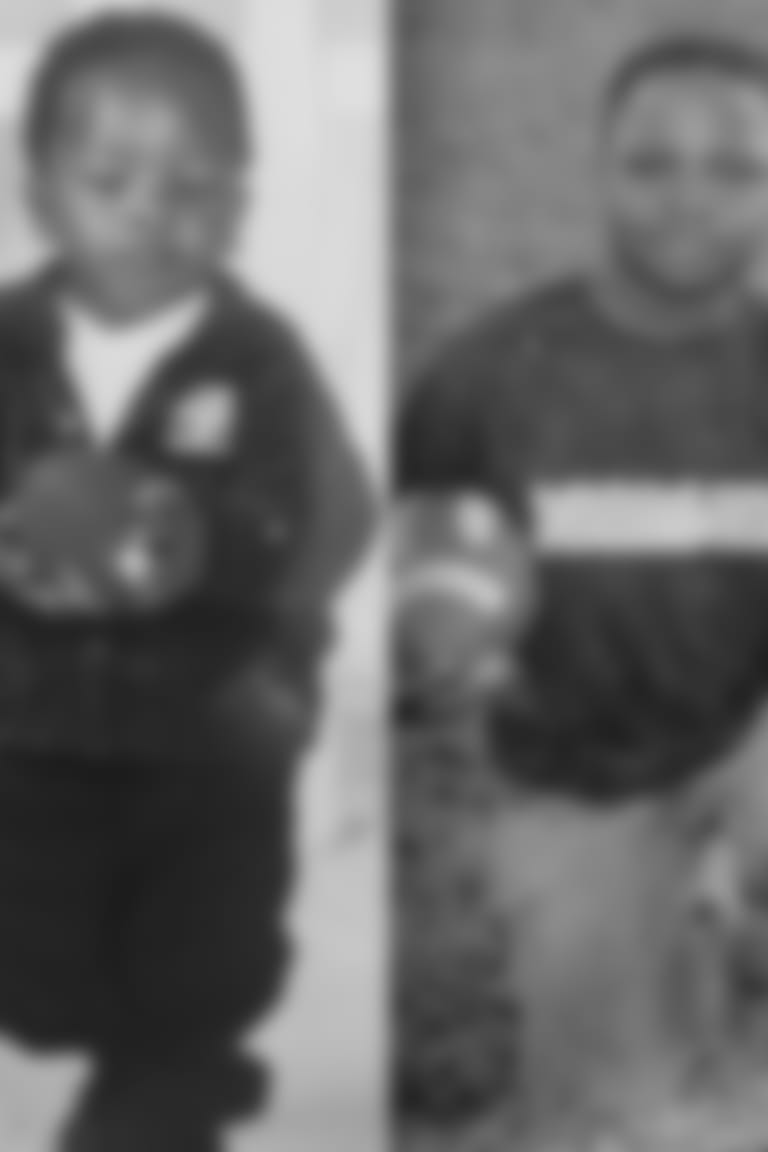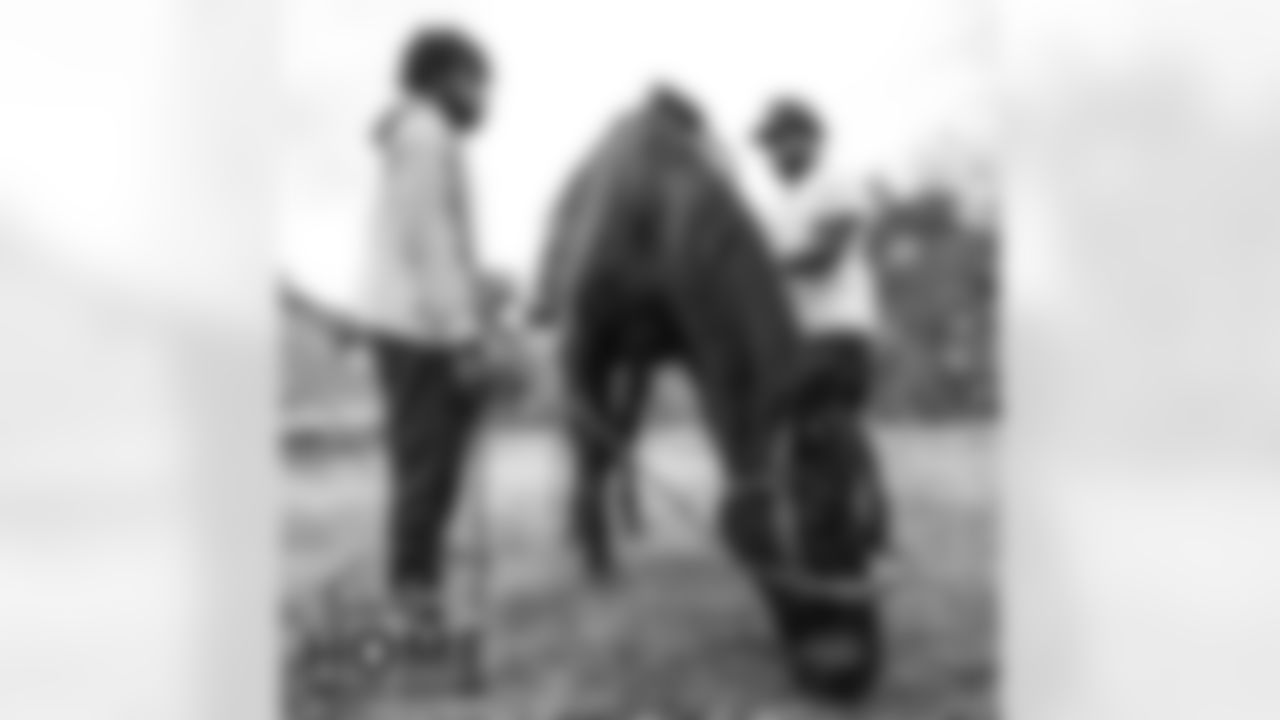About six or seven years later, Jason Tudryn was driving through the eastern side of North Carolina, where if not for the occasional high school, the farmland would seemingly stretch on forever.
For this trip, Tudryn, who was the North Carolina Tar Heels' director of high school relations, was joined by his boss, head coach Larry Fedora. UNC's football program was coming up emptyhanded in their recruiting efforts for some of the state's premier running backs, like Zamir White, who committed to Georgia, and Ricky Person Jr., who wound up at NC State.
As the pair evaluated their options between recruiting stops, the conversation turned to a small-town kid who had been a dominant-but-undersized linebacker for three years before turning his focus to running back for his final season.
"We were kind of striking out with all those other guys," Tudryn says. "I had watched, really, all of Javonte's games, because he played offense and defense. … I said, Coach, he's the best player in the state, and it's not even close. To his credit, he trusted me enough to not say, Yeah, whatever, shut up. He said, All right, let's get on him. Let's watch him again."
That Javonte had not committed to a college this late in his senior season was a minor miracle in itself for Carolina. Here was a kid who would be valedictorian of a class of 130 or 140; who had won a state championship in North Carolina's 1AA classification in each of his first three seasons; who had been defensive MVP of the title game as a sophomore; and who had been the title game's overall MVP and the county's Mr. Football selection as a junior.
In spite of all those accolades, he received little attention from Division-I programs. His coaches, though, knew better than anyone that Javonte was special enough to deserve more than what he was getting.
In the three years that Joey Price spent as Javonte's coach at Wallace-Rose Hill, he was overwhelmed by the maturity that matched or exceeded Javonte's talent. Javonte's mother had ingrained in him and his sister that education came first, and he came home with report cards that rarely, if ever, disappointed. He graduated with a 4.6 GPA, and Price once recalled that Javonte's worst grade was a 97. As a leader in the locker room, Javonte also was able to command the respect of teammates who were several years older.
On the field, from his middle linebacker position, Javonte was a nightmare — physical, fluid and a quick thinker. Over his sophomore and junior seasons, he logged 377 tackles. One series that Price remembers clearly is of back-to-back goal-line plays; Javonte met the fullback — whom Price estimates was about 60 pounds heavier — in the hole both times and dropped him to prevent touchdowns.
"He's such a quiet-mannered kid that doesn't have a lot to say with his mouth, but when he hits you, it hurts you," Price says. "… I don't mean this in a wrong way — I bet right now if they put him on defense in Denver, he'd still make plays because his motor is such [that] he's not gonna let you not let him make 'em.
"That's why he breaks tackles. That's why he keeps running. He has something inside of him that's different than everybody else."
Price began to give Javonte a significant role in an already talented running back rotation as a junior, ramping up his carries as the Bulldogs marched through the playoffs to a third consecutive title. Over the five-game playoff run, he averaged 137 all-purpose yards and about 10 tackles per game, and he scored 11 total touchdowns — seven rushing, two receiving and two defensive.
Yet, Javonte still didn't have much interest in him from any major programs. At 5-foot-10 and a little shy of 200 pounds, Javonte apparently was held back by his size at linebacker — even if he was benching and cleaning 350 pounds and squatting about 435 — "unheard numbers," as Price says.
"How could you watch those highlights, though, and not want that kid?" Price says. "What are college coaches looking at nowadays? I can't figure it."
Following that season, Price retired. His successor, Kevin Motsinger, met with his staff to evaluate their team ahead of the 2017 season, and they came to the agreement that it would be in their best interest — and Javonte's, if it worked — to move him into a primarily offensive role.
"When I told him he was mainly going to play offense, he was a little disappointed," Motsinger says. "I wouldn't say he was upset or angry, but I mean he'd been a linebacker his whole life. I asked him how many offers he had, and he didn't have any. So, for me, his way to go somewhere was at running back. … Look at his talent, his body control, his physicality … his ball skills. He was the complete package."
As he transitioned to running back, Javonte's training regimen changed. Motsinger helped him improve his hip flexibility to maintain his speed, and he put an emphasis on adding to his frame. From the time Motsinger first weighed him in 2017 to the last in late November of that year, Javonte grew from 187 pounds to 214.
That nearly 30-pound metamorphosis also required a change in meal-planning in the Williams household, and the household grill got nearly daily orders.
"It was steak," Shekemia says. "… I'll say he was probably eating four or five steaks a week. … He had to have two after each game."

































































